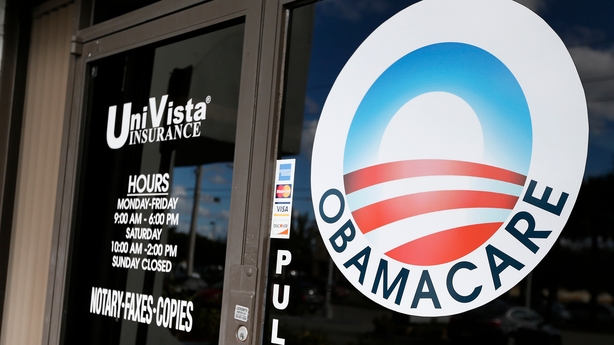Around 22 million Americans would lose their health insurance coverage over the next decade under draft legislation unveiled by Senate Republicans last week, the non-partisan Congressional Budget Office said.
By comparison, the CBO had earlier estimated that similar legislation passed by the House of Representatives would cause 23 million Americans to lose coverage by 2026.
In an analysis of the Senate draft, the CBO said the number of Americans who would be uninsured by 2026 under the Senate bill would be 49 million.
That compares with its estimate of 51 million under the House bill and 28 million under current law.
US Senate Republicans have released changes to their healthcare bill to replace Obamacare, adding a measure that would penalise people who let their insurance coverage lapse for an extended period, following criticism that the original bill would result in a sicker – and more expensive - insurance pool.
President Donald Trump and his fellow Republicans in Congress have been pushing to repeal and replace Obamacare, former president Barack Obama's signature domestic legislation.
The Senate bill unveiled last week was immediately criticised by both conservatives and moderates in the party, casting doubt over whether Republicans could win passage.
They have only a 52-seat majority in the 100-seat Senate.
It was not immediately clear if the revisions to the bill would sway any Republicans who had opposed the original measure.

Senate leaders want to hold a vote on the bill before the 4 July recess that starts at the end of this week.
But in another blow to the bill, the American Medical Association (AMA), the country's largest association of physicians, announced that it opposed the legislation.
The revised bill would impose a six-month waiting period for anyone who lets their health insurance lapse for over 63 days and then wants to re-enroll in a plan in the individual market.
The version of a healthcare bill passed by the Republican-majority House of Representatives last month includes a provision also aimed at those who let their insurance lapse for more than 63 days, allowing insurers to charge a 30% penalty over their premium for one year.
Senate Democratic Leader Chuck Schumer has strongly criticized the Republicans' new provision for a waiting period, saying in a statement that tens of millions of Americans experience a gap in their healthcare coverage every year because of job losses or temporary financial problems.
The provision "would pour salt in that wound, locking American families out of health insurance for even longer, thanks to this six-month ban provision," he said.
The AMA, in a letter to Senate leaders today, said the Senate bill violated the doctors' precept of "first, do no harm."
The AMA said it was especially concerned with a proposal to put the Medicaid healthcare programme for the poor on a budget, saying this could "fail to take into account unanticipated costs of new medical innovations or the fiscal impact of public health epidemics, such as the crisis of opioid abuse currently ravaging our nation."
Republicans have targeted Obamacare since it was passed in 2010, viewing it as costly government intrusion and saying that individual insurance markets are collapsing.
The legislation expanded health coverage to some 20 million Americans, through provisions such as mandating that individuals obtain health insurance and expanding Medicaid.
As he did during the House negotiations, Mr Trump has personally pushed for a Senate bill, calling fellow Republicans to mobilise support.
Republican Senators are working very hard to get there, with no help from the Democrats. Not easy! Perhaps just let OCare crash & burn!
— Donald J. Trump (@realDonaldTrump) June 26, 2017
White House spokesman Sean Spicer said that Mr Trump had "talked extensively to several Republican members over the weekend and he felt very positive about those discussions, but they're ongoing."
Health insurance companies have expressed concern about the bill's plan to cut Medicaid and the impact on state governments as well as the prospect of losing Obamacare's mandate on individuals to buy insurance without creating alternative incentives for people to stay in their plans.
If the Senate passes a bill, it will either have to be approved by the House, the two chambers would have to reconcile their differences in a conference committee, or the House could pass a new version and bounce it back to the Senate.

